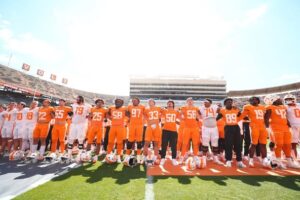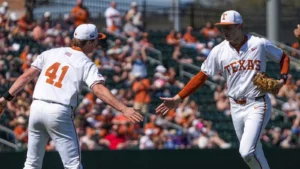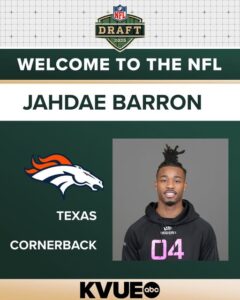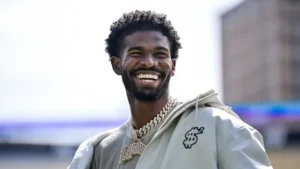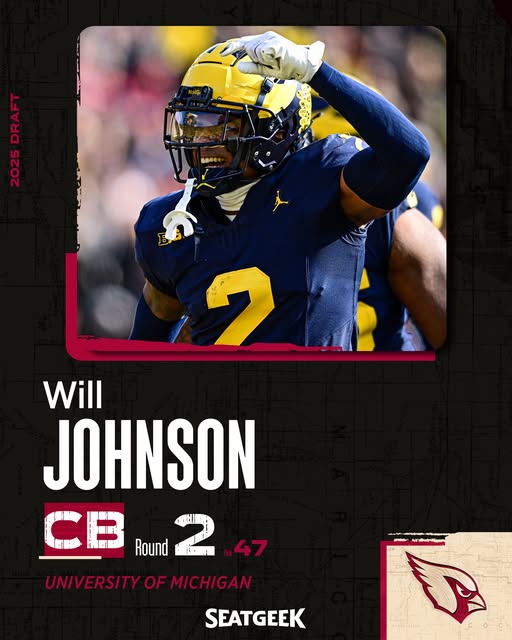
The clang of the prison gate echoes in the mind long after you walk out. It’s not just the sound of metal on metal—it’s the sound of time lost, of mistakes made, of a life that might never be the same. For Jamal “Jay” Robinson, that sound had haunted him for seven years. But on a cold March morning, when those gates finally opened and he stepped back into the world, there was one thing in his mind: redemption.
Jamal wasn’t always a number on a prison file. Once, he was a rising star—a wide receiver out of West Philly with hands like glue and a 4.3 forty-yard dash that turned heads from college scouts to local legends. By eighteen, he was the talk of the town, a senior at Imhotep Charter running slants and go routes that made jaws drop. He had the scholarship offers, the hype, even the interviews. They called him “Jet Jay.”
But Philly isn’t easy. And talent doesn’t shield you from trouble.
It started with the wrong friends, then escalated to the wrong choices. At 19, one bad night changed everything. An armed robbery charge—wrong place, wrong people, and Jamal, always chasing loyalty, took the fall. Seven years in Graterford. Seven years of what-ifs.
Inside, it was survival. But it was also reflection.
“I used to run from everything,” Jamal once told his cellmate, Bones. “Now I’m learning how to stand still and look in the mirror.”
Bones, an old-timer who ran his own unit in the yard, just grunted. “The mirror don’t lie. But it don’t heal you neither. That’s your job.”
Jamal found solace in routine—reading, writing, and, when the yard allowed it, running routes. He ran invisible plays, his feet tracing lines on the concrete like it was Lincoln Financial Field. Other inmates watched him with amusement at first, but then they started tossing rolled-up socks, then Nerf balls, and eventually an old football someone smuggled in through a friend who worked maintenance.
“He still got it,” Bones would mutter, watching Jamal leap for corner fades with the same hunger he had at 17.
When he got out at 26, Jamal had no illusions. The NFL window had likely closed. But football wasn’t about fame anymore. It was about peace. It was about proving, to himself more than anyone, that he was more than his worst mistake.
He went home to West Philly. The streets hadn’t changed much—corner boys still hustled, the old heads still sat on crates watching the world go by. But Jamal had changed. He walked like a man with purpose now. He didn’t flinch when someone barked at him from across the street. He kept his eyes on the horizon.
His old high school coach, Coach Dawes, was the first to take him back in.
“Jay?” he said, squinting at him through the screen door. “Boy, you look grown now.”
“I am, Coach. I’ve been through it.”
Coach Dawes didn’t ask questions. He just nodded and led him inside.
“You still got hands?” he asked over black coffee.
“Better than ever.”
That summer, Jamal helped coach the Imhotep Panthers. The kids looked at him with wide eyes. Some had heard of him—the legend who could’ve gone pro, the ghost who vanished. Others just saw a quiet man who moved like a panther and spoke like a monk.
But one of those kids had a cousin who was a scout assistant with the Eagles.
“Yo, Jay,” the kid said one day, handing him a phone number scribbled on notebook paper. “My cousin says they’re holding open tryouts for the practice squad. Says you should come.”
Jamal laughed. “Man, I’m 27. I got a record.”
The kid shrugged. “So? They let Vick play.”
He said it like it was gospel.
It stuck in Jamal’s head all week.
Michael Vick. Another Philly redemption. Another brother who’d done his time, paid his dues, and earned back his name.
On a humid July morning, Jamal showed up to the Eagles open tryout wearing worn cleats, a white tee, and the hunger of ten years. There were hundreds of hopefuls—former college stars, walk-ons, dreamers. The odds were slim. But when Jamal took the field, the staff noticed.
He moved like he hadn’t missed a day. His cuts were razor sharp. His hands? Still glue. And when he ran a 4.38 in the 40, the heads really turned.
“Who the hell is this guy?” one coach muttered.
“Name’s Jamal Robinson,” the scout said, flipping through his clipboard. “No college ball. Did time. Out of Philly.”
The coach raised an eyebrow. “You think he’s trouble?”
The scout watched Jamal haul in a sideline grab, dragging both feet in like it was Sunday afternoon.
“I think he’s a second chance.”
Two weeks later, Jamal got the call. Practice squad. Nothing guaranteed. Just a shot.
But that was all he needed.
The first time he stepped into the Eagles facility in NovaCare, he took a moment. He touched the wall where the franchise’s motto was etched: Trust the Process. The irony didn’t escape him.
He was anonymous at first. Just another jersey. But talent can’t hide. When A.J. Brown pulled a hamstring mid-season, the coaches needed someone to simulate him in practice.
“Put 84 in,” one of them said.
That week, Jamal lit up the secondary. He caught everything. He made the DBs sweat. The veterans started asking, “Who is this dude?”
Word spread. They called him “Ghost”—’cause he came outta nowhere.
But he wasn’t invisible for long.
In Week 12, the unthinkable happened. Injury bug hit. Eagles were down two receivers. They elevated Jamal from the practice squad.
Sunday night. Prime time. Against the Cowboys.
He sat in the locker room, helmet in lap, the lights humming above.
Coach Sirianni walked by and clapped him on the shoulder.
“Ready to fly?”
Jamal nodded. “Born for it.”
He played sparingly in the first half. Mostly decoy routes. But in the fourth quarter, tied game, third and eight from midfield, Hurts looked to the sideline, then to Jamal.
“X drag. You good?”
Jamal’s voice was steady. “Always.”
The ball snapped. Jamal darted under the coverage, slipped past a linebacker, and found space. Hurts hit him in stride. 12-yard gain. First down.
Then came the next play—play-action bomb. Jamal ran a post route, broke the safety’s ankles, and soared.
Touchdown.
The Linc erupted. Teammates swarmed him.
From the Big House to the Bird Gang.
The next morning, ESPN ran a segment: “Jamal Robinson—From Inmate to Eagle.”
They tried to summarize it in soundbites, but they couldn’t touch the soul of it.
He wasn’t just a player. He was a symbol. Of resilience. Of grace. Of the power of a second chance.
Now, every time he laced his cleats, Jamal whispered the same words.
“I’m not who I was. But I’m who I’m meant to be.”
And Philly? Philly embraced him. Because this is a city that loves the underdog. That respects the fighter. That knows what it means to fall—and rise again.
He wasn’t Jet Jay anymore.
He was Ghost.
He was an Eagle.
He was free.

